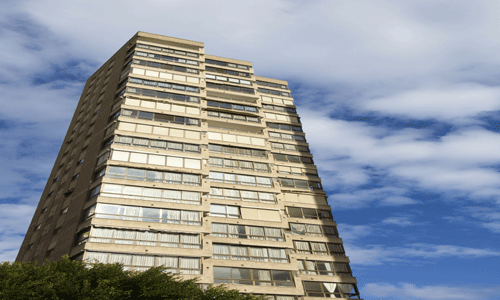Vibrant cities for vibrant economy-IV
By: Track2Media Intellisearch
Track2Media Rank-3
 During the year 2011 when almost all other matured property market witnessed dip in transaction and price correction was on everyone’s lip, Bangalore registered both healthy transaction as well as upward price movement. While the home loan interest rate hikes are dampening the property market in other parts of the country, sales are steady in Bangalore because there has been substantial wage inflation too.
During the year 2011 when almost all other matured property market witnessed dip in transaction and price correction was on everyone’s lip, Bangalore registered both healthy transaction as well as upward price movement. While the home loan interest rate hikes are dampening the property market in other parts of the country, sales are steady in Bangalore because there has been substantial wage inflation too.
Bangalore typically has first home-buyers in the 27-35 years of age. “Younger home-buyers are willing to take the rate hike,” says Archana S. Bhargava, Executive Director, Canara Bank.
Some property analysts believe Bangalore is possibly the safest location for investments in the world. Prices do not skyrocket or get hyped here and they do not go downwards too like they have in many other prominent locations in India. This is because Bangalore is a market where most of the property purchases are by end users and not speculators. Speculators treat it as a pure investment for financial gains.
A leading real estate company conducted a study on the pattern of first purchases (purchase straight from developer) by end-users. The study found a surprising and comforting factor that 81.2 percent of first purchases in Bangalore were by end-users and not speculators or investors who look for just financial returns. This figure in locations such as Mumbai could be as low as 40 percent.
The advantage of end-users buying more is prices do not appreciate or depreciate at abnormal percentage across the city. This is comforting factor for a homebuyer since the prices would be stable and would move upwards or downwards within a small band. Even during the recession, the salability in Bangalore property was quite visible. Also, the market here is not driven by economic sentiment in some other parts of world but by the actual demand and supply situation in the particular location where the project is located.
Bangalore real estate has, of late, seen a spate of transactions where high networth investors (HNIs) have scooped up fixed rental income assets. Traditional business families from Kolkata and Uttar Pradesh, who in the past financed developers in cities like Chennai, have moved their capital in Bangalore in recent years. A Kolkata-based investor has acquired 2.17 lakh sft of commercial space from Embassy Property Developments for Rs 141 crore. The office space at Embassy Paragon in Bangalore’s IT suburb Brookefields is occupied by tech giant Intel.
The Silicon Valley of India is also witness to more and more land being dedicated to the establishment of tech parks and commercial real estate Grade-A office space. According to global workplace solutions provider Vestian CEO (Asia Pacific) Shrinivas Rao, “In the last five years, around 50 million sq ft of commercial real estate Grade-A office space has been absorbed, out of which more than 75 per cent has been taken by IT/ITeS.”
Bangalore has also seen an escalation in rents of residential apartments during Q2’11 (April-May-Jun-2011) over Q2’10, according to the real estate portal 99acres.com. The rate of appreciation differs in each micro market but most localities have witnessed double digit growth.
“The commercial property prices in Bangalore are more affordable compared to those in NCR and Mumbai. Tenants here are more stable and pedigreed, given the dominance of the IT industry. And these are huge positives for HNI investors,” says Anuj Nautiyal, Executive Director, Redwoods Capital, a real estate brokerage and asset management firm.
He reckons that Bangalore may now be the top metro in terms of HNI transactions by volume even though Mumbai and NCR would outstrip it by value. Standard Chartered Bank, Kotak Mahindra and ICICI Securities are pushing Bangalore’s commercial real estate story to their private banking clients and often syndicating deals on their behalf for 10-12% annualized return. The city’s realty is seen as more competitive and open, which often enables investors to wrest better deals.
Now that metro rail has zoomed across Bangalore, the real estate industry in the city is also seeing property prices zoom. From Old Madras Road to Byappanahalli, realty has zoomed up by the sq ft – from Rs 3,000 to Rs 6,000 per sqft. Developers as expected are now rushing to start projects along the first phase of metro. What is getting property developers really excited is the second phase of Bangalore metro which will be launched in December 2012. This phase will connect most suburbs to the commercial hubs of the city. Property prices in these areas are increasing by 10 to 15 per cent in anticipation of the metro.
Real estate prices along the Metro will follow the same pattern as in Delhi where prices shot up by 15% to 20%, says Sushil Mantri, CMD of Mantri Developers.
Namma Metro MD N Sivasailan says, “In fact the people who protested are now the biggest champions of the metro, they are happy that business is booming.”
Irfan Razack, CMD of Prestige Group says the action has moved from downtown to the suburbs. Metro connectivity to areas like Kanakapura and Mysore Road will see a lot of realty traction. Hence, price escalation on the periphery is sharper than in the Central Business District.
Moreover, with the value revision coming into effect, most localities in Bangalore could see an upward revision of 15-20 per cent in property values. This is likely to impact property-buying in the city.
No wonder, large industrial houses such as the Tatas, L&T, Godrej, Murugappa, Mahindra & Mahindra etc have established presence in the real estate sector here, and the Coimbatore-based LMW and Lakshmi Mills also are gearing to enter. This makes Bangalore the most sought after property market. Mumbai-based Godrej Properties (GPL) has already launched three projects in Bangalore.
As S.S. Asokan, Executive Director, Shriram Properties says, “The presence of reputed corporates in the real estate sector provides an assurance of quality to real estate projects and the buyers are the biggest gainers from their entry.”
Advantage Bangalore
- Healthy transaction & upward movement
- No boom-no bottom market
- HNIs choice
- Bullish corporates
- Metro connectivity to periphery





